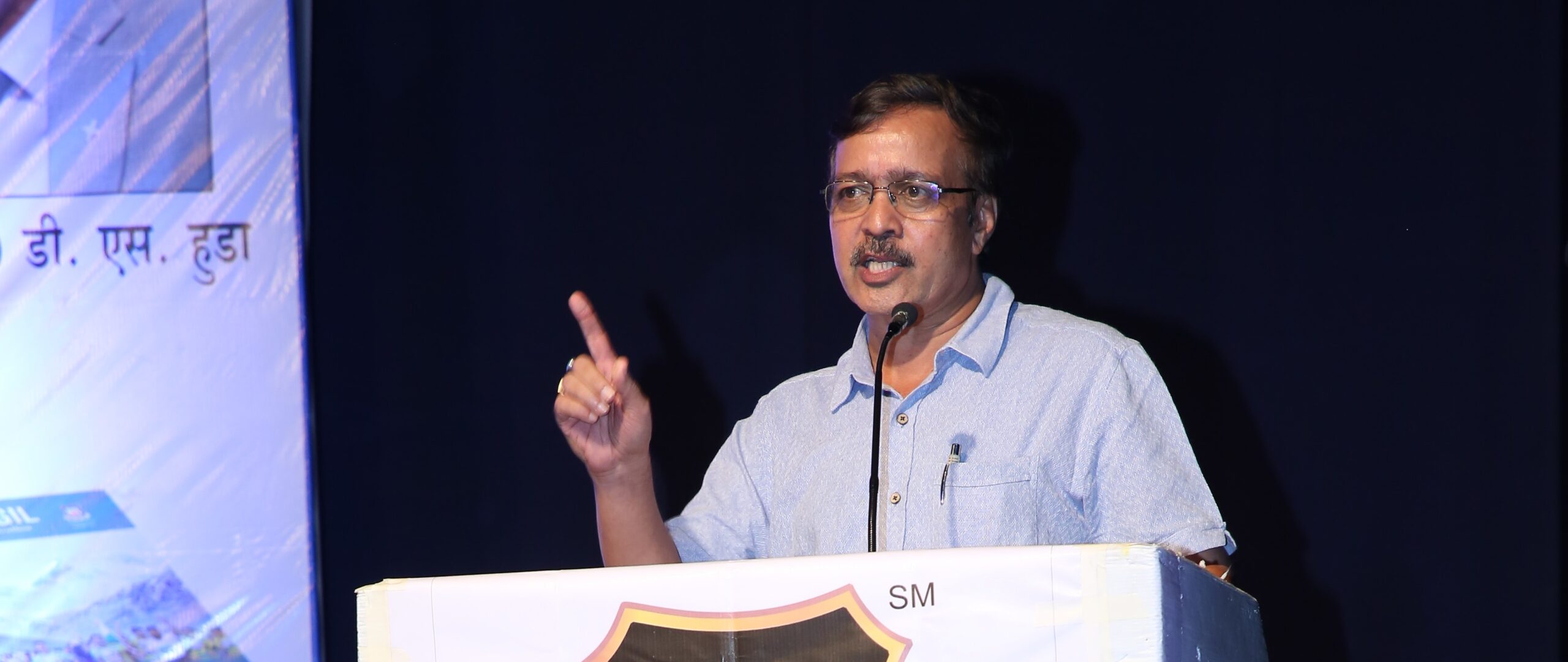Sanjay Nahar
The Man With a Mission

JOURNEY
In the year 1984, on 23rd March, Sanjay Nahar founded Vande Mataram, a social organization dedicated to the cause of national integration, along with a few like minded fellow young men. Like his own birthday, coinciding with India’s Independence Day, the formal beginning of working for national cause coincides with the anniversary of the day the great freedom fighters of India, Bhagat Singh, Sukhdev and Rajguru were hanged by the British. The day is observed as Martyr’s Day in India. Pune, in Maharashtra, which is a hallowed place where many major national movements have started in its history, once again was the ideal incubator for Vande Mataram. The date was especially significant on the backdrop of severe violence that had gripped Punjab.
In the year 1984 the Punjab issue was at its peak and in October it culminated into the assassination of the then Prime Minister of India, Mrs. Indira Gandhi. Sanjay Nahar and Vande Mataram, were quite disturbed by the turn of events like every other Indian. Vande Mataram had commenced its activities with a visit to Punjab in the form of a Peace March and observe first hand the situation in that state. Sanjay Nahar and his colleagues kept visiting Punjab, establishing people to people contact and spreading the message of peace in the strife torn state. In all 21 peace marches were organized during the subsequent period. Even at that early stage, Sanjay succeeded in organizing various peace talks between the different streams of thought. A major example of this was the meeting between Prof Darshan Singh Raagi and Jain muni Sushil Muni, which took place after the Rajeev – Longowal accord. Their efforts at that young age endeared them to the people as well as the authorities. In fact, during a flood situation in Punjab around that time, one of the activists Dattatraya Gaikwad drowned while valiantly trying to save a Sikh family. He was conferred posthumously, the President’s Medal. In the process of such humanitarian work Sanjay Nahar got introduced to and received appreciation from eminent leaders of the time in Punjab, like Sardar Jeevan Singh Umranangal, Satyapal Dang, Amrita Pritam the eminent writer, Vijay Kumar Chopra the editor of Punjab Kesari, J. F. Ribeiro, Sardar Beant Singh, Prakash Singh Badal, Jagjit Singh Anand as well as (now ex- DGP Maharashtra and Punjab) S. S. Virk. Even three former prime ministers of India, Rajeev Gandhi, Chandrashekhar and I. K. Gujaral were all praise for his work. Sanjay Nahar’s role proved pivotal in many youths abandoning the path of militancy and starting a normal life, though he himself had received many threats to his life during this period, while even facing two failed attempts on his life.
Around 1987, prior to visiting Kashmir, Sanjay’s attention was drawn to North East, where the AGP agitation was in full blast. He in fact established contact with the AGP leader (later elected CM of Assam) Prafulla Kumar Mahanta and started exploring ways to start working to build bridges between people in that part of the country. Eventually however, work in Kashmir engulfed him for more than two decades before he could refocus his attention on the North East.
In March 2012, Sanjay Nahar visited Pakistan as a member of a peace delegation led by veteran journalist Kuldip Nayyar. His public speeches were well received by the journalists and people in Pakistan. He met with the then Pakistani Prime Minister Yusuf Raza Geelani, Sherry Rehman, Shazia Mami etc
Having worked closely with people and authorities in two Border States of India, Punjab and J&K, Sanjay Nahar founded Sarhad, a social organization dedicated to work in the border areas, in 1995. Today, that small sapling has become a large tree in the form of a reputed organization which has created a great name and place for itself in history with a number of initiatives like Sarhad School – Sarhad College of Arts, Commerce & Science at Katraj, Pune which provides education to more than 150 Kashmiri children. All the expenses for lodging and boarding of these students are borne by Sarhad without any help from government or foreign agencies. – Kashmir Festival in Pune every year, in which the culture and art forms of the Kashmiri artistes is on display in Pune – Sant Namdeo National Award for the outstanding contribution to the nation in any field of endeavor. The recipient of the award each year is strictly a person belonging to Punjab and the award is a token of appreciation by the people of Maharashtra. -Bhagavan Mahavir International Award for Peace & understanding – Bhupen Hazarika Award for the outstanding contribution to Humanity by a person belonging to North East. From the academic year 2013-14, 100 students from the North East would be admitted in Sarhad, Pune. Sarhad will bear the lodging, boarding and educational expenses of these students. Sanjay Nahar is a regular panelist on various TV channels when there are discussions related to Pakistan, Kashmir and Conflict issues. He is also invited to write articles in leading Marathi dailies on these subjects. Sarhad Research Centre for Management of Conflict Resolution & Peace Dr. Raghunath Mashelkar Science Lab and Research Center. Navalmal Firodia Computer Lab. Plans are afoot to set up a World Music University to promote peace through music in Pune. Chinar Publishers, a publishing house which brings out conflict & peace related books by well know authors as well as other thought provoking titles in Marathi and English.

